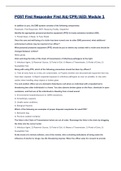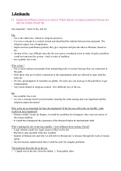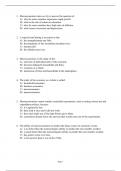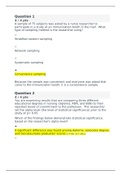Essay
How convincing is Utilitarianism when referring to the issue of eating meat?
Applied Ethics essay on Utilitarian approach to eating meat. Not perfect but hopefully will help some to gain an idea of how to structure such an essay. Best for A Level students studying AQA Philosophy.
[Show more]












